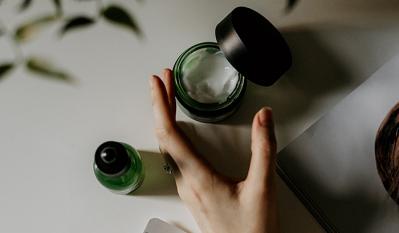Face creams – skin care with questionable substances?

Especially during the cold season, many consumers like to use facial creams to provide their skin with sufficient moisture or fat. By binding the water or fat contained in the creams, the skin remains soft and flexible. To find out what the quality of facial creams on the market is like, some products from drugstores, (organic) supermarkets, pharmacies as well as discounters were tested by Ökotest.
Preservatives and fragrances in face creams
A Formaldehyde releaser was found in one sample. Formaldehyde is a preservative that can irritate the eyes and mucous membranes. In the EU, the substance may no longer be used in cosmetics. Instead, Formaldehyde-releasing substances, known as Formaldehyde releasers, are used in some cosmetic products. They release low concentrations of formaldehyde over a longer period of time. Annex V to Regulation (EC) No. 1223/2009 specifies the labeling requirement for formaldehyde in the end product. Currently, a concentration of 0.05% or more must be indicated on the packaging as "contains formaldehyde". In the future, this value will be lowered to 10 mg/kg to strengthen consumer protection.
In addition to formaldehyde, the preservatives butylparaben and propylparaben were also found. Both substances are suspected of having hormonal effects on the body.
Fragrances are used in facial creams to mask any inherent odors of the products or also to give the creams their own character. According to Regulation (EC) No. 1223/2009, some fragrances are either completely banned in the EU (including Atranol and Chloratranol) or must be declared above a certain level:
- leave-on products from 10 ppm
- rinse-off products from 100 ppm
Among others, the synthetic fragrance lilial (butylphenyl methylproprional) was found during the above mentioned test. Since March 2022, cosmetics containing this fragrance may no longer be sold in the EU as the substance can impair reproductive ability.
MOAH could also be detected
It is not uncommon for cosmetic products to be manufactured based on mineral oil. However, when mineral oil-based fats are used, there is a risk that they are contaminated with aromatic hydrocarbons MOAH (mineral oil aromatic hydrocarbons). This group of substances is also criticized for having a negative effect on human health. It is suspected that these chemical compounds can have mutagenic as well as carcinogenic effects.
The Tentamus Group laboratories test your cosmetics
Do you want to offer your customers a safe skin care experience and protect yourself from expensive product recalls? The laboratories of the Tentamus Group will be happy to support you. Our experts test your cosmetic products for questionable ingredients such as preservatives, allergenic fragrances, parabens, or mineral oil hydrocarbons. We also carry out microbiological and sensory analyses - giving you an all-round carefree package.
Read more about cosmetic testing here.
Source: Ökotest